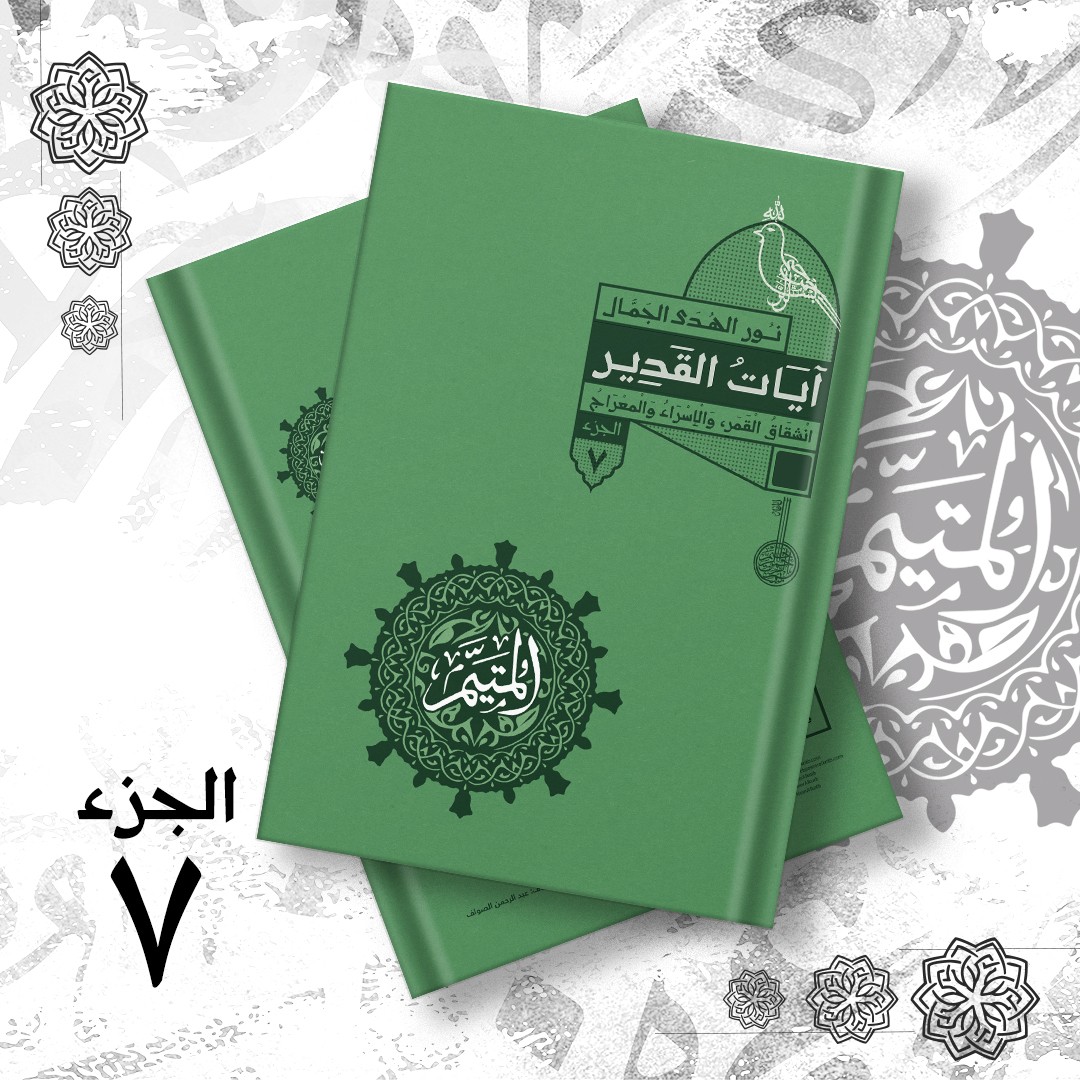
Sale 20%
Al-Mutayam 7 - The verses of the Almighty
Price: 172.00 EGP 215.00EGP
In the previous part (Part Six), we discussed a stage from the early phases of the Islamic call, namely the stage of persecution. We covered this stage in twenty-six snapshots, each depicting the extent of the physical and psychological harm endured by the Prophet Muhammad ﷺ and his companions. Despite all this, they were not deterred from their religion, nor were they diverted from their creed, the light of which had settled firmly in their hearts.
Now, in this seventh part, we will begin by discussing one of the miracles that Allah supported His Prophet ﷺ with, namely the miracle of the splitting of the moon. This great miracle, which is unparalleled in the miracles of the prophets, served as a clear sign of the truth of Prophet Muhammad's message.
After that, we will talk about the migration of some companions to Abyssinia (Ethiopia), examining the reasons for this migration in both its first and second phases. We will explore why the Prophet ﷺ chose Abyssinia and the reaction of the Quraysh to this migration, as well as how the companions coped with this difficult phase in a foreign land.
Following that, we will discuss a stage that was one of the most challenging periods faced by the Prophet ﷺ and his companions, namely the period of the harsh siege. Quraysh besieged the Messenger of Allah ﷺ and his followers in the Shi'b Abi Talib for three years, drafting a treaty known as the "Pact of Boycott," which they hung inside the Kaaba as a guarantee of its implementation.
This siege was not lifted until two tragic events occurred, causing profound sadness to the Prophet ﷺ: the death of his uncle Abu Talib and the death of his wife Khadijah, the Mother of the Believers.
We will then discuss the Prophet's journey to Taif to call its people to Allah, the resistance he faced from them, and the outcome of this encounter.
Finally, we will delve into the Isra and Miraj, a journey surrounded by much discussion: Was it a waking experience or a dream? Did it involve the soul only, or was it a physical and spiritual journey combined? Why did the Isra precede the Miraj? These are some of the questions we will address in this part.
Afterward, we will discuss the two pledges of Al-Aqabah, their significance, and the implications they had in opening up new avenues for the call to Allah and creating a conducive environment for receiving this religion, which the Messenger of Allah ﷺ invited to. These pledges served as a prelude to the Prophet's migration to the illuminated city of Medina.
Finally, we will conclude this part by discussing Quraysh's desperate attempt to rid themselves of the Prophet ﷺ by conspiring to assassinate him. They agreed to assign one man from each tribe to strike him simultaneously, hoping to distribute his blood among the tribes and thus prevent retaliation from the Banu Hashim clan. However, Allah protected His Messenger ﷺ from this, saying to him, "And Allah will protect you from the people" [Quran 5:67].
Reviews:
.jpeg)




.jpeg)
.jpeg)
.jpeg)



